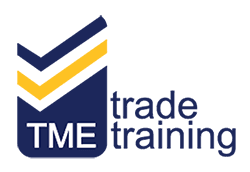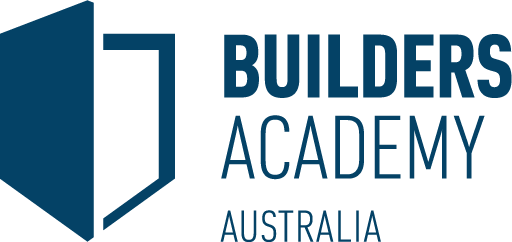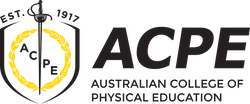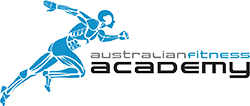Teaching Children with Special Needs: Complete Career Guide
Teaching children with special needs requires a special type of person — one who has not only special skills and qualifications but also the right attitude and ambition. Becoming a special needs educator is a unique opportunity to help frame and develop the minds of young people.
As an inclusive educator, you’ll need to learn how to use specialised learning material and equipment and also how to apply specialised educational techniques — wanting to discover more about this role and the industry? Then read on below.
What is inclusive education?
Inclusive education is a system in place where all students, regardless of their learning capabilities, can be placed in the same classroom. Those with disabilities are provided with the proper support and systems to help them integrate inclusively in the same educational space as those without disabilities.
By teaching special needs students in schools, it can enable the students both to feel included and also attend a school that is close to their home, while still meeting their educational needs.
Though challenging, a career as an Australian special needs teacher would be one of the most rewarding types of teaching jobs you could have. If you’re up for the challenge of providing quality care, support and friendship, then this career could be for you.
Teaching Children with Special Needs
What to Expect
Teaching students with special needs will come with a multitude of challenges. Knowing how to deal with a special needs child is of the utmost importance in any teaching role, but it’s especially crucial for a special needs teacher. You should do your research and know what you’re going into before choosing special needs teaching as your career of choice. Here’s a list of essential things you need to know about before pursuing a career as a special needs teacher:
It's highly stressful
Stress is expected with any teaching position, but it’s especially stressful as a special needs teacher. This is mainly due to the amount of attention you need to give the students who require your help. You must continuously be on the ball and have sound mental health as you can’t allow yourself to divert your attention at any time. There is also always the potential for the students to have a ‘meltdown’ which can carry additional stress as it will be your job to manage it.
All students are different
No two children are the same, and with that comes added stress. You must be able to multitask and be dynamic in your methods. Teachers who want to go into special needs education have to know more about childhood development than ordinary teachers because they have to be able to work outside of standard development. They also need to know all about various learning disabilities, such as autism, ADHD and Down’s Syndrome.
You must be patient
The students who you deal with will work at a very different pace to everyone else; therefore, patience is incredibly important. They won’t always co-operate, and some children may require more of your attention than others. It’s imperative to try and keep your cool and understand that everyone works at their own pace.
You need to be caring and empathetic
A level of understanding and empathy will go a long way in any career, but it’s especially important as a special needs teacher. Knowing how the brain works of a child with special needs will assist you in helping them excel with their learning. You need to act as a pillar of support for these students so that they’re comfortable being around you and more willing to listen to you.
It’s recommended that you do your research by speaking with other special needs teachers who may be able to give you further advice to help you decide on whether a job as a special needs teacher is right for you.
If it doesn’t seem like the right fit, you can still venture into education through another position, such as in support services.
Duties and Tasks
To better understand the role, it’s good to keep in mind the list of responsibilities and tasks you’ll be required to undertake as a special needs teacher.
As you are teaching special education, you’ll have more tasks and duties than most regular school teachers, meaning you’ll dedicate a lot more hours to your job.
Your list of tasks include:
What is a special needs child?
The term’ special needs’ is used to describe a vast array of diagnoses and disabilities. Ranging from physical and developmental to behavioural and sensory, generally, these students face learning difficulties that require special attention or amendments to help them better adapt and learn.
Knowing the different types of disabilities out there is vital for a special education role. You need to understand how to effectively manage and educate the children based on the methods that best work for their disability.
How to Become a Special Needs Teacher
To become a teacher of special education, you must first undertake study and placement. All Australian education courses require you to first obtain a working with children’s check before you can commence the course. Though there aren’t educational requirements to enter all of the courses, your skills and capabilities will be assessed prior, and advice will be given on whether it’s suitable that you undertake the course.
Traditionally, the only way to obtain a degree in special needs education was to attend a University and complete coursework physically, but these days it’s possible to get your qualification in education online. Bear in mind, however, that if you choose to complete your special needs degree online, you will need to find a school that will allow you to complete the practical aspects of the course such as placement.
Majority of courses require you to complete around 120 hours of placement in educational environments such as:
You will be required to fill out a logbook with your hours, and you’ll regularly have someone enter the classroom to assess your performance. The practical element of the course is the most important and gets assessed the harshest.
This is because at the end of the day, what you’re practising in placement is what you will be required to do every single day once you become qualified.
Courses for Special Needs Education
You can start out your quest to become a special needs teacher by completing an Education course. There’s plenty to choose from, including a Certificate III in Education Support or the very popular Bachelor of Education and then entering Special Needs postgraduate courses or by choosing an undergraduate degree that includes special needs teaching aspects.
You can also take a more roundabout route to become a special needs teacher. You could, for example, take TAFE courses in education, such as TAFE Certificate IV in Education Support.
The certificate allows you to become a teacher’s assistant, which includes support for special needs teachers.
For all of the courses, you will be assessed in several different ways. These include:
You’ll also undertake subjects that involve learning about the behaviour of children and how you can support their development in fields such as literacy and numeracy, plus loads more.
There are heaps of courses available, and you have the opportunity to pick one that’s most suited to your needs, whether that be through online study or on a part-time basis.
Statistics about the industry
The industry of education is one of the fastest-growing industries in Australia. Every year, Australia’s education system attracts students from all around the world, making it a $20 billion export industry.
Employment within the education sector is predicted to grow by 12% over the next five years as we become internationally recognised as a world-class leader in education. As the population continues to grow, so does the need for more specialised and qualified teachers to help guide our children for the future.
Check out our infographic below for more information on the special education industry:
Where can a career take you?
In the world of education today, there’s a way higher demand for special needs teachers than before. Now that even more disabilities are recognised; more children require additional support, care and assistance with their learning and development.
Whether that’s in specialist centres, as support staff in childcare centres, primary schools or secondary schools, there’s no shortage of jobs in the education support sector.
You can also choose to pursue a career in child care or disability to further your learning in a specialised career. The beauty of this diverse career path is that you have the option to choose what you’re most passionate about and tailor your study to suit.
Whether you’re on the hunt for a career change or beginning your job search, there’s a multitude of job outcomes available. These include:
So long as you have qualifications in education or education support, finding a career path that suits you should be no issue. It’s all about trying to find what you’re passionate about and what you believe you’re good at.
No matter where the job takes you, a career in special education will be an incredibly rewarding and fulfilling role.
Special Needs Teaching Methods
Special needs teaching is an incredibly complex and fast-paced type of position. No two days will ever be the same, and unfortunately, every child will respond differently to your methods. Such a role must understand how different disabilities work and what methods work best based on the type of disability.
You can roughly divide disability into four branches; physical, developmental, sensory and behavioural. This includes teaching kids with learning disabilities like ADHD, above-average intelligence (gifted) and children who are on the autism spectrum, as well as children with physical disabilities.
Teaching methods for children with special needs vary according to the severity and the type of disability.
Mild learning disabilities might require the use of extra visual cues in lessons or more physical activities that can still occur in a traditional school environment. Still, more severe special needs could also include aspects of physical therapy and one-on-one classes in special education schools.
It’s important to remember that even if you’re teaching special needs children in an inclusive education school environment, you need to customise learning programs to their individual or additional needs.
You also need to develop programs with parents – to the parent’s capabilities – so that they can continue to promote learning and development at home. Furthermore, your programs need to address children’s social, emotional and behavioural needs.
There’s also a range of different strategies that special needs teachers will often include to help them with their teaching methods. Some of these strategies include:
Forming small groups
By creating small groups within the class, you’re able to place students together who are at the same or similar learning capacity. This means that the students who are still only at a basic level can get the help they need, while those who are more capable can have a more difficult task than the other students. This should help the students who are less capable still feel included while also being able to structure the lesson plan to suit all the students’ needs.
Play educational games
Gifted students will often get bored with the class content quite quickly and can then disrupt the class to try and entertain themselves. It’s worth occasionally getting the students outside to both exert some energy and keep their minds active. You can play spelling games, times tables games, and whatever else you can think of that will help the students both engage and learn at the same time.
Using assistive learning technology
We are incredibly lucky with the world we live in today with all the access we have to assistive technology and online tools. You can now easily access assistive apps and other online learning aides on iPads, laptops and even phones, making assistive learning even more accessible.
Discover your special needs students strengths
It’s essential to pay close attention to your students with special needs to discover where their strengths lie. This is not only useful in helping you to harness their strengths but it can also be encouraging for the student. If a student knows they’re good at something, it can help with their self-esteem.
No matter what methods or strategies you undertake in teaching your students, a good teacher will continue to research and implement different methods that can best help the students develop.
Jobseeker & Employment Resources For People With Disabilities
We’ve rounded up some of the best resources for job seekers with disabilities in Australia, covering a wide range of topics.
Learn More
Start Your Career Teaching Children
with Special Needs Today
Is there really a career path more rewarding than dedicating the time and support to help the development and learning of gifted and special needs kids? Start your career today with one of these popular childhood education and care courses.
Teaching Gifted Students
What may come as a surprise to most is that gifted or highly intelligent students are also listed as special needs students. These students with higher abilities do not perform well in ordinary classrooms as their special needs are often left unattended or underdeveloped.
What is commonly found amongst gifted students is their tendency to act up and disrupt the class; this is because they can find the class content to be boring and not challenging enough. The hardest part about teaching gifted students is to keep them challenged and motivated with innovative lessons and creative teaching methods.
A few key things to keep in mind about gifted students include:
If you’re ever lucky enough to have the opportunity to teach a gifted child, you must do your research and figure out what’s best for that child.
Special Needs teaching is as rewarding as it is challenging, but the effect you will have on a child’s life is something that makes this such an important career. If you want to start making a difference today, begin your career through one of the education courses on offer; or, continue your path in a disability or child care course instead.
No matter what field you choose to go into, the education industry is one that is both challenging and rewarding and is perfect for anyone who is up for both.
Browse Results
Diploma of Building and Construction (Building) (SE Melb Only) CPC50220
This course (CPC50220) is designed to meet the needs of people working in the building industry whose intention is to become a Registered Building Practitioner, satisfying the education requirements of the VBA. It is specifically designed for learners...


Diploma of Nursing (SA Only) HLT54115
Build a career that’s meaningful, fills you with a sense of purpose, and provides diverse job opportunities, with this Diploma of Nursing course. Offered via a blend of on-campus and online learning the HLT54115 Diploma of Nursing is the ideal starting...




Certificate IV in Building and Construction (Building) (VIC Only) CPC40110
If you are an aspiring or working tradesperson, here is your foundation for success. This is your first step towards starting your own building business and preparing for the builders registration. We understand that you could be a busy tradie by day,...


Diploma of Building and Construction (Building) (VIC Only) CPC50210
Prepare for registration as a Builder with the Diploma of Building and Construction (Building) (CPC50210) Gain the skills & knowledge to run your own business Study when it suits you – online & on campus options available...


Certificate IV in Plumbing and Services (VIC ONLY) CPC40912
This course covers common skills for the plumbing industry as well as specialist streams relevant to gasfitting, drainage, sewerage, roof drainage and more....


Building Leadership Programme (VIC ONLY) CPC40110 ,CPC502110
BAA is proudly partnered with Victoria University to offer our students higher education opportunities. Whether students are after an alternative way to gain entry into a degree, or simply want to try out a study path so they can confirm their longer-t...


Bachelor of Dance Education
Australia’s first Bachelor of Dance Education! Delivered through ACPE, this is a specialist professional qualification that is unique in Australia. Units are provided by highly qualified and experienced professionals, empowering you with all the knowle...


Bachelor of Education (Physical & Health Education)
If you’re keen to pursue a career in physical and health education, the Bachelor of Education (Physical and Health Education) will provide you with the graduate qualification to become a PDHPE teacher. Based on the Graduate Outcome Survey 2021, ACPE wa...


Associate Degree of Sport Business
Get a higher education qualification in two years when studying full-time! Based on the Bachelor of Sport Business in terms of content, the Associate Degree of Sport Business offers students the opportunity to get into the workforce quicker or alternat...


Bachelor of Dance Practice
The Bachelor of Dance Practice is a specialised degree that will equip you with the skills and experience to become a professional in the dance industry. The course develops artistry, choreography, performance, educational and organisational skills for...


Bachelor of Health Science (Exercise)
The Bachelor of Health Science (Exercise) offers the perfect career path for those looking to enhance their knowledge and skills through further studies in physiotherapy, exercise physiology, and other health professions. You will come to understand ho...


Bachelor of Sport Coaching (Strength and Conditioning)
To address the high demand for sport coaches and professionals in Australia, the Bachelor of Sport Coaching (Strength and Conditioning) is a specialist degree fostering the coaching, administrative, and professional skills necessary for a fulfilling ca...


Bachelor of Sport Coaching (Management)
With employment increasing in Australia for sport coaches and specialist managers, the future looks bright for our graduates. It doesn’t matter where your passion for sport takes you, your qualification from ACPE can help make your dream a reality. The...


Bachelor of Sport Business (Leadership)
Turn your passion for sport into a career by immersing yourself in a degree that will broaden your theoretical and technical knowledge, so that you are fully equipped fora management role within the sport industry. The Bachelor of Sport Business will d...


Certificate IV in Patisserie (Melbourne & Brisbane Only) SIT40721
This 18-month course combines practical and theoretical learning to give you expertise in all thing’s pastry. On this course you will learn everything from Gateaux to Croissants to Cheesecakes to Buffet showpieces. The role of a Chef Patisserie is a sp...


Certificate III in Community Services (Perth Only) CHC32015
The Certificate III in Community Services is perfect for entry level community services workers who support individuals through the provision of person-centred services. Work may include day-to-day support of individuals in community settings or suppor...


Certificate III in Fitness SIS30321
Looking to begin your career in the fitness industry? The Certificate III in Fitness (SIS30321) is the minimum qualification required to commence working as a qualified Gym Instructor or Group Exercise Instructor. Not everyone prefers to learn in the s...


Personal Trainer Course SIS30321, SIS40221
Join the fitness industry as a personal trainer and feel the satisfaction of knowing you are making a difference in people’s lives. Becoming a personal trainer can be very rewarding and having the flexibility of being your own boss and choosing your ow...


Certificate IV in Fitness SIS40221
Have you been working in the fitness industry as a gym instructor and now want to become a Personal Trainer? Taking the next step to gain the higher qualification will open up an array of career possibilities not currently available when holding only t...


Bachelor of Health Science (Naturopathy)
Naturopathy is a whole medical system combining theory (philosophy and principles) and practise that uses an array of natural therapies to support healing and maintain health. Naturopaths aim to treat the underlying causes of illness and disease. The c...







